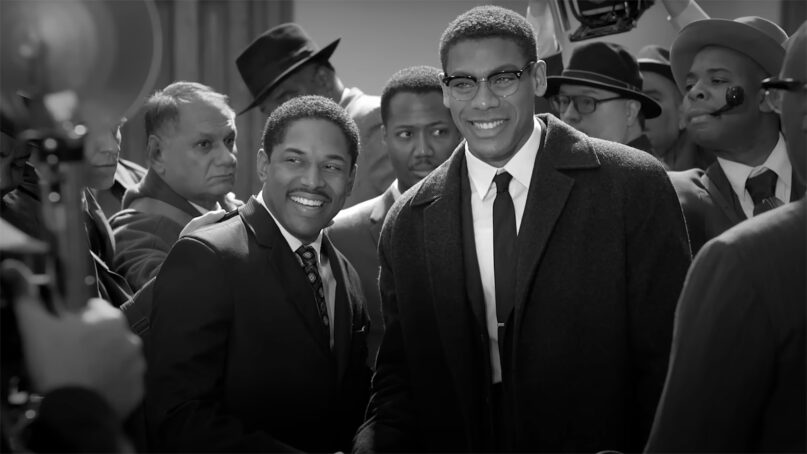WASHINGTON (RNS) — A new National Geographic docudrama series explores the lives of the Rev. Martin Luther King Jr., Malcolm X and their wives, detailing how faith and family played significant roles for the men known for their work in pulpits and protests.
In “Genius: MLK/X,” actors and executive producers said their aim is to portray these larger-than-life figures as human beings who grappled with doubts and fears as they faced death threats and other pressures before each was ultimately assassinated at age 39.
The eight-part series, which premieres Thursday (Feb. 1) on the National Geographic channel and begins streaming the next day on Disney+ and Hulu, depicts the men’s lives in parallel, highlighting the iconic moment when the two met — just once, on Capitol Hill — and details and imagines their lives before and after that time.
The series, executive produced by a husband and wife team, includes scenes of the two men at home with their wives, Coretta Scott King and Betty Shabazz, and children, discussing their faith as they meet the challenges of the day.
Actress Jayme Lawson, who plays Shabazz, Malcolm X’s wife, said the series drives home that these power couples led complex lives in private that were guided by their faith.
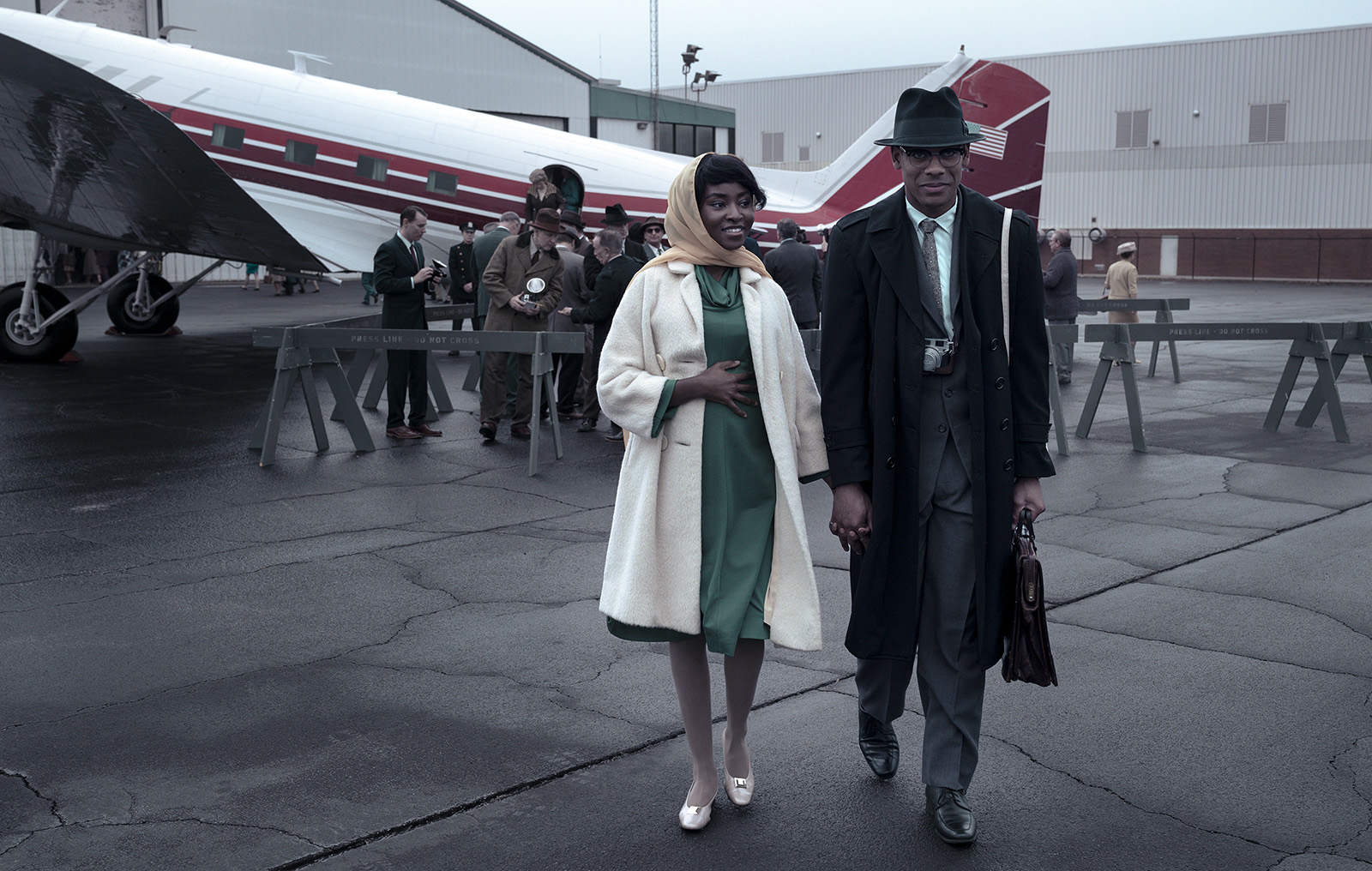
Betty, played by Jayme Lawson, and Malcolm, played by Aaron Pierre, are reunited after Malcolm returns from a trip in “Genius: MLK/X.” (National Geographic/Richard DuCree)
“Oftentimes we see such leaders and such women of such resolve, that they have it all together, or they’re so 100% all the time convicted about what they believe,” she said in an interview at a premiere event Jan. 25 at the National Museum of African American History and Culture.
“It’s more nuanced, it’s more complicated, but it’s OK to have the questions and the uncertainty, because in actuality, it builds a better resolve.”
RELATED: Moms of Martin Luther King Jr., Malcolm X and James Baldwin portrayed in new book
Two new episodes will air weekly in the series, the newest installation in National Geographic’s ongoing “Genius” anthologies, which have depicted in previous years Albert Einstein, Pablo Picasso and Aretha Franklin.
Gina Prince-Bythewood, who co-produced the series along with her husband, said it was key to include a “think tank” of perspectives as they created the show, including Attallah Shabazz, ambassador-at-large of Belize and one of Malcolm X’s daughters, along with journalists and activists.
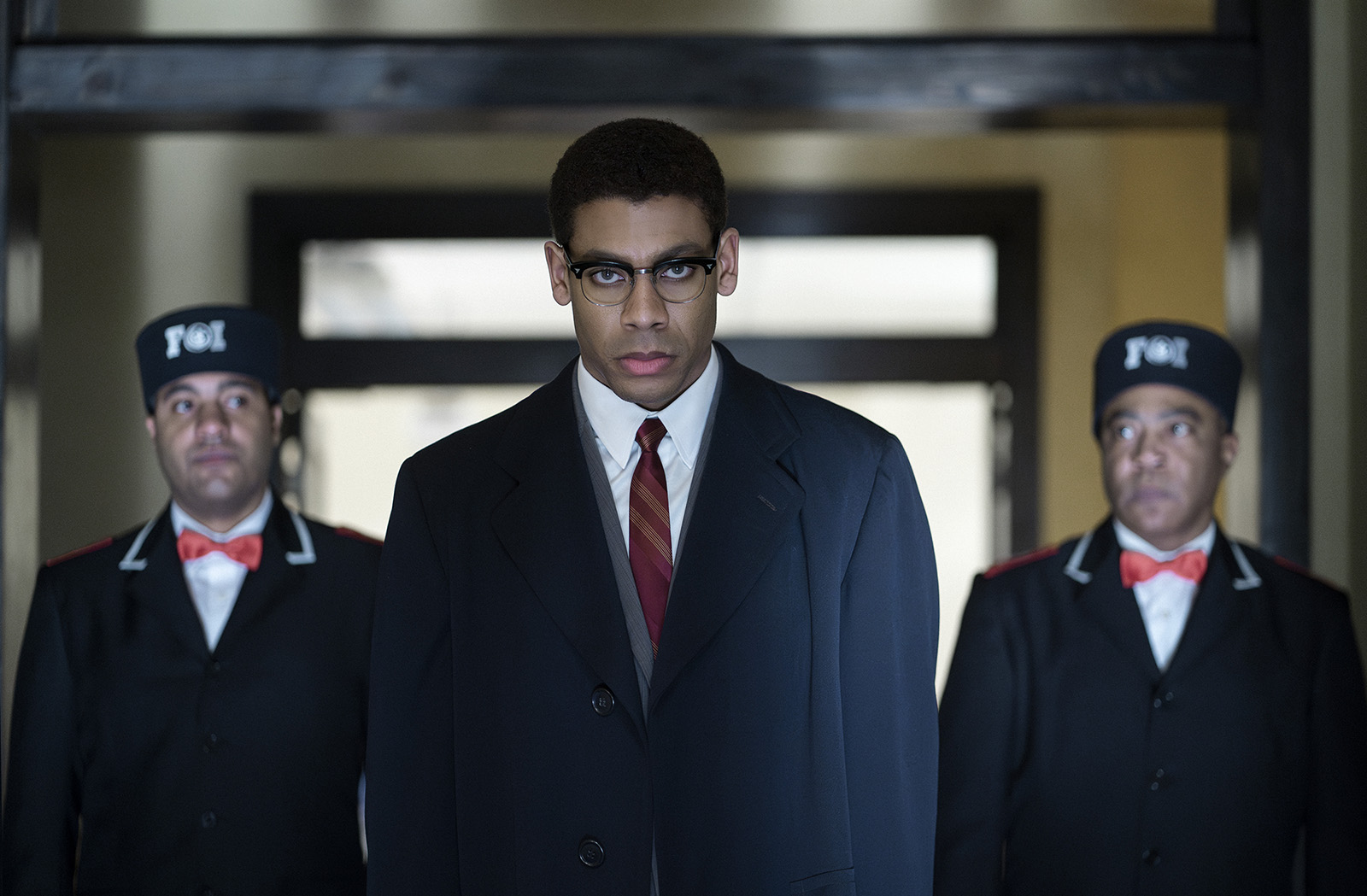
Malcolm X, played by Aaron Pierre, is escorted from Temple in “Genius: MLK/X.” (National Geographic/Richard DuCree)
“It was important for us to get this right: We are telling the story of these two — actually really four — four great people and icons, and we wanted to go beyond the T-shirt and really get to their humanity,” she said. “And the way you do that is to do research and really dig beyond what most people know.”
Co-executive producer Reggie Rock Bythewood said that brain trust, which included leaders of Muslim and Christian communities, would share information “and sometimes debate each other” in a process that helped the couple learn more about the characters they were going to portray.
“One of the things that’s really interesting when you look at Malcolm and Martin is how much faith played a role in the movement, how important that was to them,” he said. “You can look at it as a contrast, but it’s also one of the similarities.”
Peniel Joseph, whose book “The Sword and the Shield: The Revolutionary Lives of Malcolm X and Martin Luther King Jr.” was an inspiration for the series, also saw those commonalities.
“They’re interested in connecting faith movements to social justice movements for all people, both in the United States and around the world,” he said, in an interview.
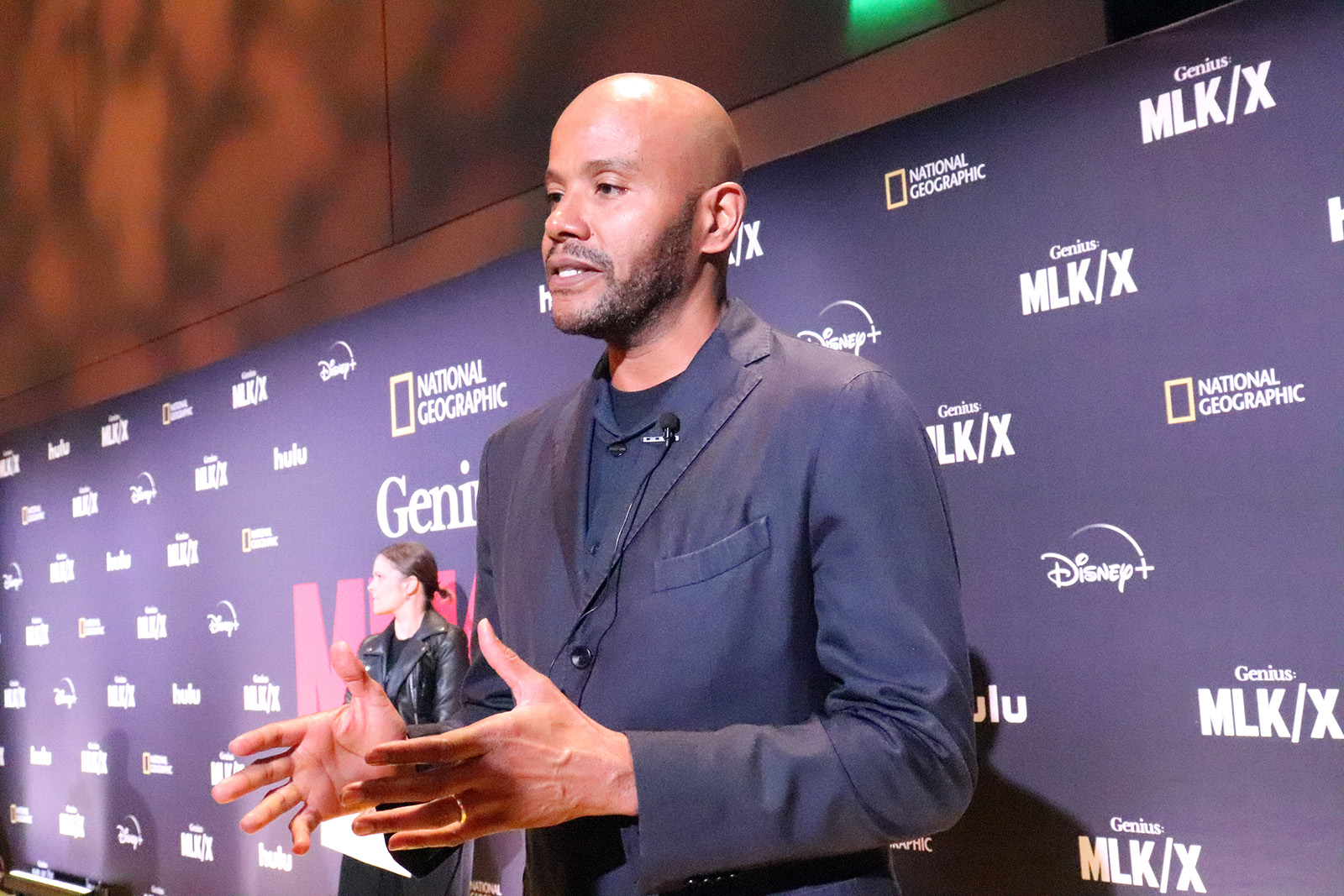
Author Peniel Joseph speaks during a “Genius: MLK/X” premiere event on Jan. 25, 2024, at the National Museum of African American History and Culture in Washington. (RNS photo/Adelle M. Banks)
The series illuminates numerous other similarities, including their fathers’ great expectations for them, their experiences with racism from the time of their youth, their concern about the safety of their growing families, their wives’ support and the frustration the women felt when their contributions to the cause were not recognized.
And both men, challenged by members of their own organizations as well as outsiders, make a shift near the end of their lives, with Malcolm X leaving the Nation of Islam and converting to Sunni Islam and King speaking against the Vietnam War, two decisions that helped fuel anger against them.
At times, King and Malcolm X are shown in personal moments, walking a child home or cooking in the kitchen or in a time of prayer.
Kelvin Harrison Jr., who portrayed King, recalled a scene where King was in jail and called out to God in prayer “surrendering to God and being like, ‘God, I don’t have the answers.’”
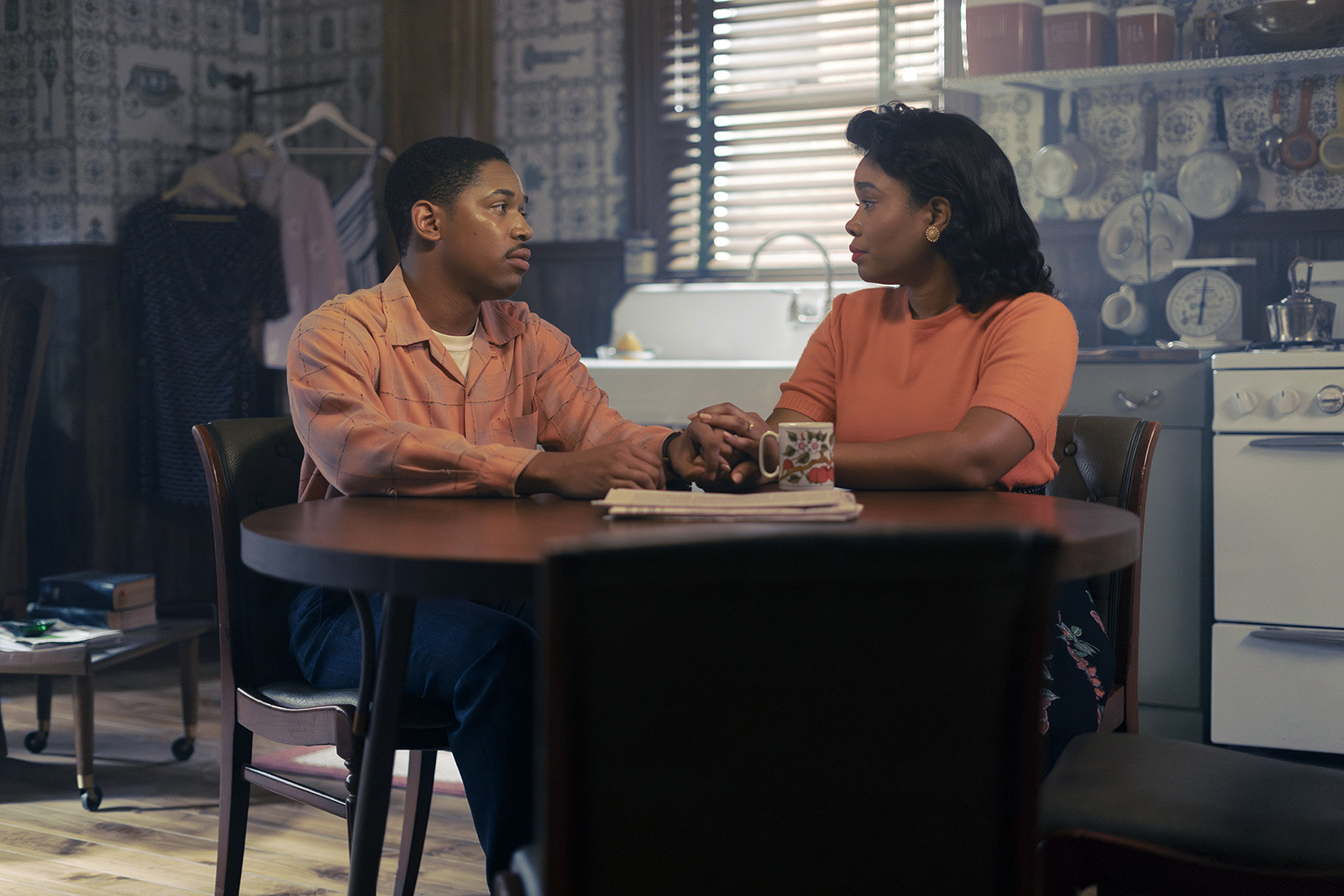
Martin and Coretta, played by Kelvin Harrison Jr. and Weruche Opia, make a big decision in “Genius: MLK/X.” (National Geographic/Richard DuCree)
The actor said it reminded him of his own questions about taking on such a role.
“It’s an act of obedience,” he said in an interview. “And that’s what Dr. King so beautifully displayed every single time.”
Weruche Opia, who played Coretta Scott King, said she was inspired by the religion of the woman who married the Baptist minister from Atlanta.
“It was extremely encouraging for me to learn how much her faith played a part in everything she did,” said Opia in an interview. She added that she read “My Life, My Love, My Legacy,” a posthumously published memoir, as a “blueprint” to prepare for the role.
“She said that whatever decision she made in life, she prayed about it.”
Aaron Pierre, who portrayed Malcolm X, said the cast members supported one another as they sought to depict the famous civil rights activists.
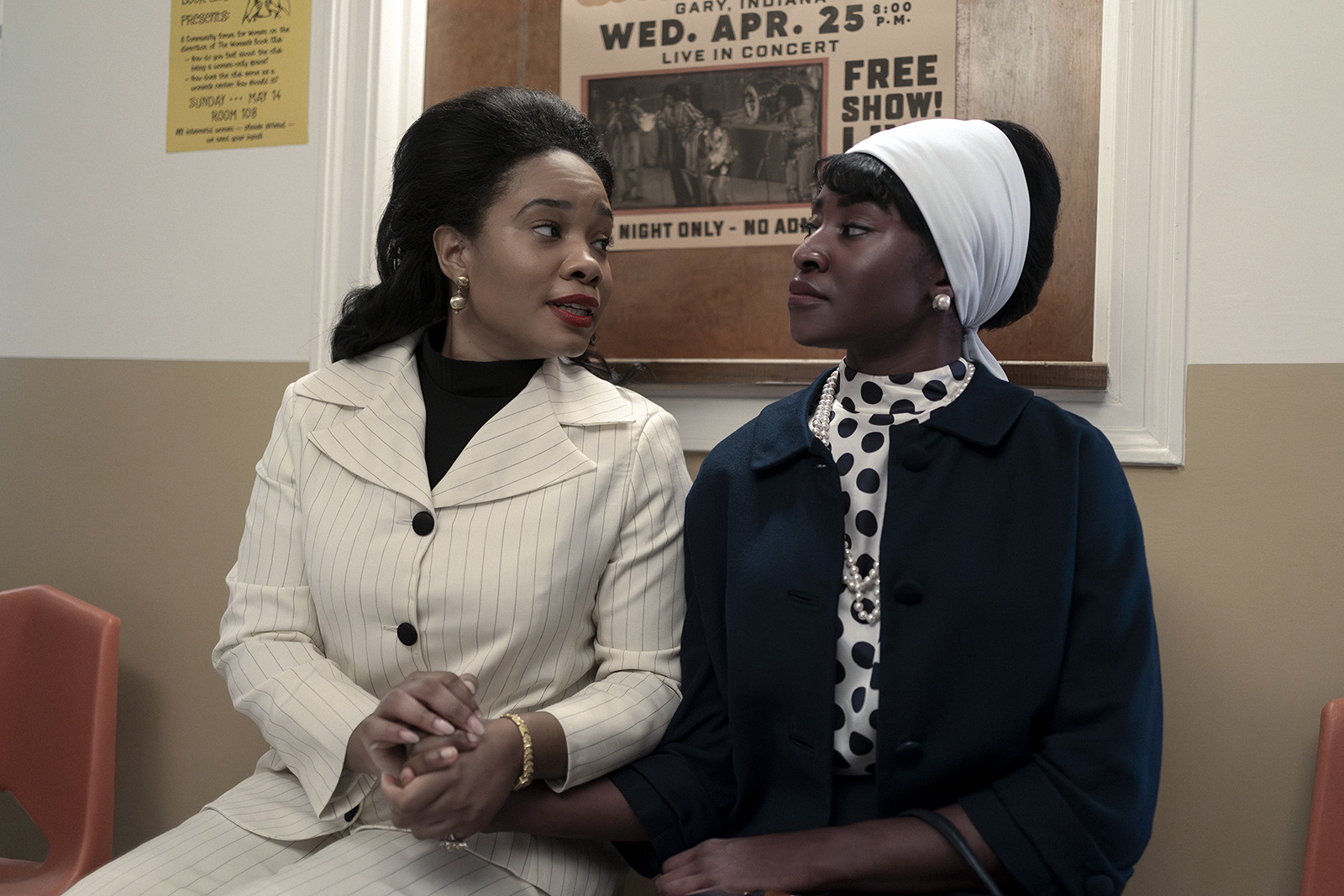
Coretta Scott King, played by Weruche Opia, and Betty Shabazz, played by Jayme Lawson, in “Genius: MLK/X.” (National Geographic/Richard DuCree)
“There was no easy scene, there was no easy day,” he said. “Every day I felt the enormity of the responsibility.”
He said his family’s connections with a variety of faiths, including Islam, Christianity and Rastafarianism, helped him portray the role: “It was a privilege to have the opportunity to deepen my understanding of Islam, and what it is to be a Muslim, especially at that time.”
Lawson said she appreciated the series’ exploration of the beliefs of Shabazz, who was depicted returning to teach a class of women in the temple led by her husband, who initially wanted her to give it up to be at home.
“I think we get to see the real intimate relationship with her faith,” Lawson said, adding that she prepared by reading books, including “Betty Before X,” a children’s book written by Ilyasah Shabazz, the third daughter of Malcolm X and Betty Shabazz.
In a panel discussion after the premiere of the series at the museum, Prince-Bythewood said her and her husband’s home had long included the framed image of the iconic handshake between King and Malcolm X, which took place as the 1964 Civil Rights Act was being debated.

Poster for “Genius: MLK/X.” (Image courtesy National Geographic)
She said she hoped the series would give a broader picture of the men and their wives, so they could be seen as role models rather than static images.
“Knowing how much we want to be inspired, how much we know this country certainly needs inspiration, it’s really hard to see yourself as ‘I can be Malcolm X,’ ‘I can be Dr. King’ if we only see them up on the pedestal,” she said, crediting the people who studied and worked with the two men for helping shape the series.
“It allowed us to get beyond that pedestal, get to the real people who they were, make them real and tangible, because then, when you can see yourself in somebody, it’s easier to say, maybe I can do that too.”
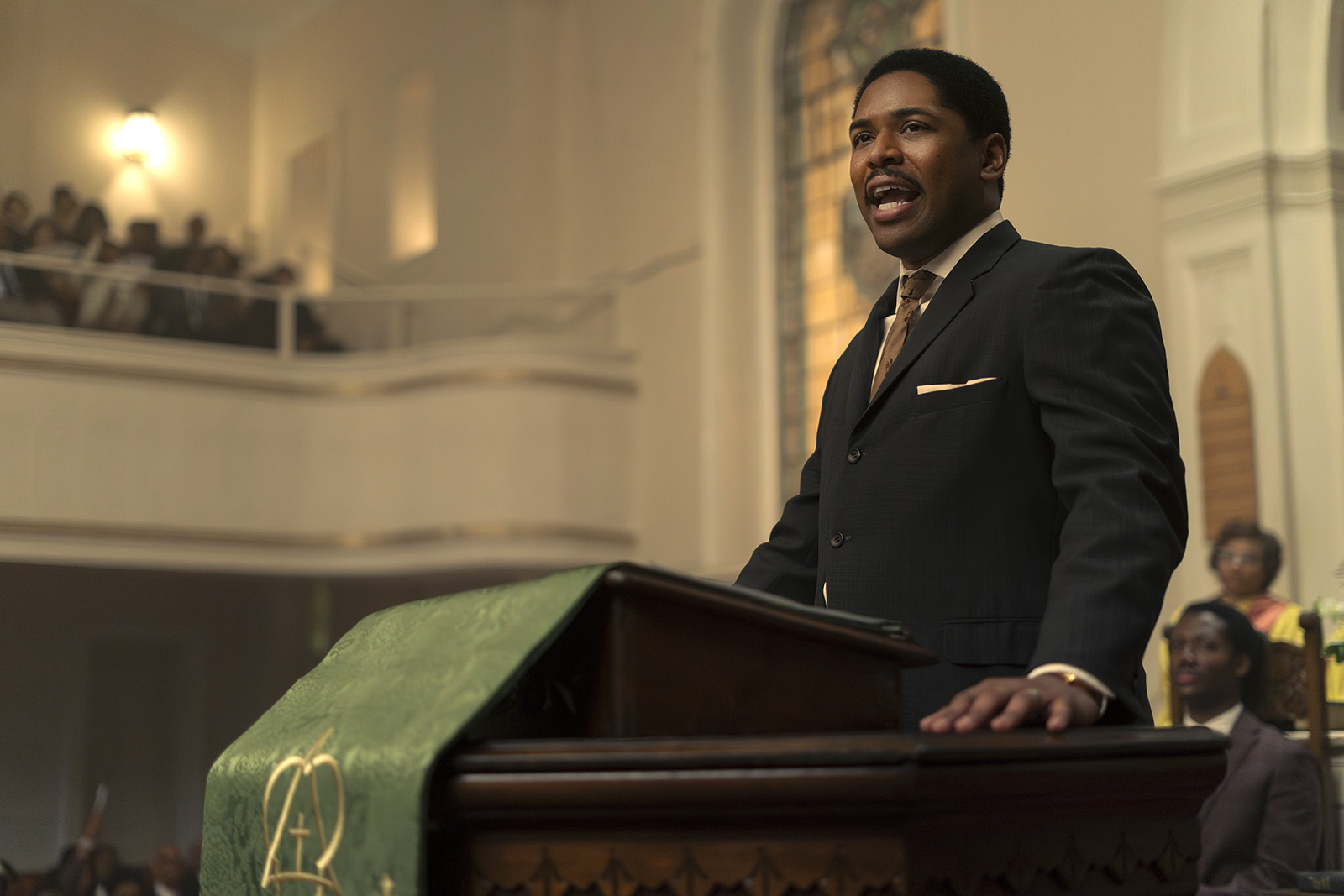
Martin Luther King Jr., played by Kelvin Harrison Jr., preaches in “Genius: MLK/X.” (National Geographic/Richard DuCree)
RELATED: In her own words: Coretta Scott King on faith, materialism and grief
